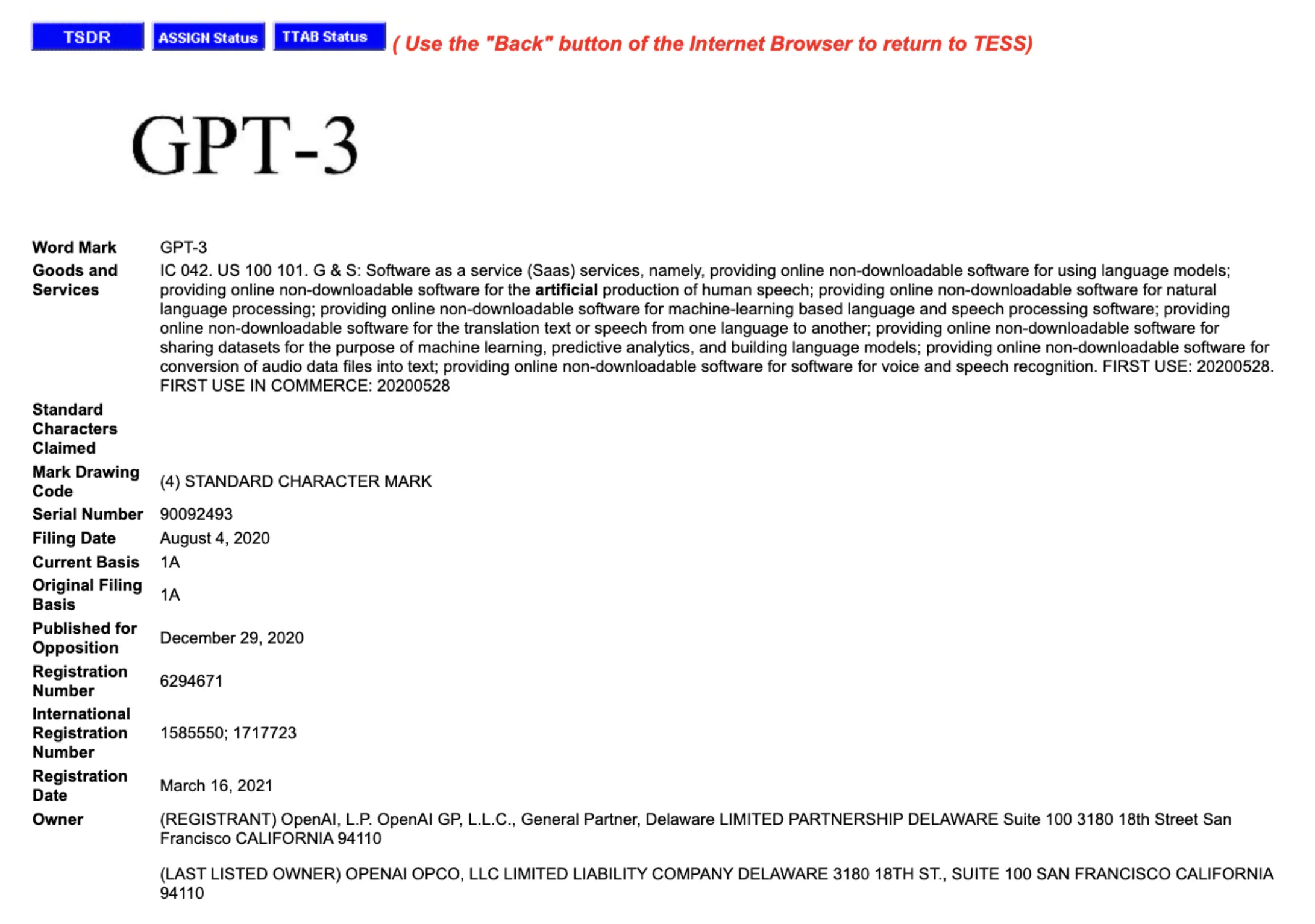Exploring “GPT” as a Trademark
By Jessica Neer McDonald, Esq.
Does OpenAI own a trademark for "GPT"? Brief review of U.S. trademark filings to explore this further.
It is no secret that there has been an explosive amount of activity in the artificial intelligence (AI) ecosystem. This includes many companies affixing the term "GPT" to AI- (and non-AI) related activities.
TIME magazine released "The A to Z of Artificial Intelligence" on April 13, 2023 and called the term "GPT" as "perhaps now the most famous acronym in AI," and short for "Generative Pre-trained Transformer."
In 2020, OpenAI released GPT-3 and filed for (and subsequently obtained in 2021) a U.S. registration for GPT-3 in connection with SaaS services.
In November 2022, OpenAI released ChatGPT. Since '22 to ~March '23 there have been 58 U.S. trademark filings for various alleged marks incorporating "GPT." As of today, there are around 88 U.S. trademark filings.
In December 2022, OpenAI filed for the mark GPT in connection with SaaS services, downloadable computer programs and software, & more. This was initially filed on an intent-to-use basis, then amended to include use in commerce since October 2018.
On March 2023, OpenAI filed a request with the USPTO to expedite the review citing:
widespread media attention associated with “CHATGPT” software release
aggressive action against infringements & counterfeit apps
damage of reputation and goodwill due to the "flood of infringing software"
The request to expedite was denied, but a Nonfinal Office Action issued shortly thereafter on May 25, 2023. Aside from a partial refusal due to specimen, the USPTO cited "GPT" as merely descriptive. In particular, the refusal claimed that the acronym is substantially synonymous with the descriptive words it represents.
Moreover, in an advisory note, the USPTO claims "GPT" to be generic in connection with the identified goods/services. OpenAI must respond completely to the refusals or extend the time to respond by August 25.
Open AI's application for “CHATGPT” in connection with related goods/services similarly received a descriptiveness refusal on May 25, but an advisory note states that the application can be amended to the Supplemental Register.
In summary, while still early in the application process and a trademark in the U.S. can be owned without owning a registration, the USPTO takes the position that "GPT," or even "CHATGPT," on OpenAI's applied-for goods/services are not inherently distinctive. This can impact others in the AI ecosystem interested in using the term "GPT."
The cover image was created using the prompt “GPT” via Midjourney software. This article otherwise has no affiliation or is representative of any other type of relationship with Midjourney, Inc.
Neer McD PLLC© 2023. This work is licensed under a CC BY 4.0 license. This license allows reusers to distribute, remix, adapt, and build upon the material in any medium or format, so long as attribution is given to the creator. The license allows for commercial use. An example of proper attribution is, “[Article Title]” by [Author] of Neer McD is licensed under CC BY 4.0.
This information is educational and informational in nature and should not be relied upon as legal, business, investment, tax, or any other advice. No representation is made as to the accuracy of the information. Please consider this a high level review that is not comprehensive and consult with professional advisors as needed. Moreover, nothing in this article should be construed as forming an attorney-client relationship.







